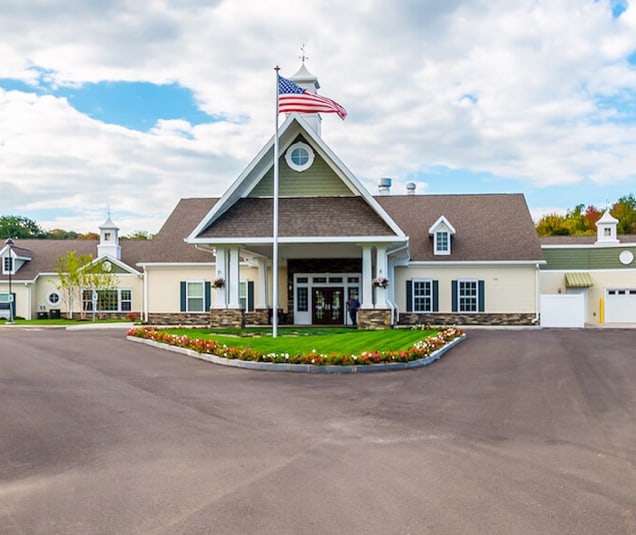There are complexities to navigate when caring for an aging parent. For example, you may need to consider long-term care options, such as memory care, for when you can no longer be their caregiver or their needs are beyond your capabilities.
Power of attorney is another thing that you should consider with your older parents, and earlier while they can make informed decisions is better. Getting a power of attorney (POA) isn’t a difficult task, but the exact process may vary depending on the type of POA you need. Although you don’t technically require a lawyer to get a POA, it’s typically advised because they can help ensure it complies with all applicable state laws so that your parent’s wishes are accounted for and respected.
The Significance of Power of Attorney
A POA is a legal framework that empowers a designated individual to act on behalf of the senior regarding financial, legal, and some health matters. The POA document holds more than just legal weight for families with aging parents. It’s a profound statement of trust and support during a time when health or cognitive decline may threaten autonomy.
Crucial decisions can be confidently made that align with the senior’s expressed wishes when the right agent or attorney-in-fact is chosen.
Understanding the Process
Getting a POA involves several key steps:
Define the Need
The first stage is recognizing when the need for a POA arises. Observing signs of declining health or cognitive ability in one’s parents should trigger an open and compassionate dialogue about future care and oversight. Keep in mind that this may not be a single conversation. It could take several conversations before everyone is on the same page.
Select an Attorney-in-Fact
The attorney-in-fact is the designated individual who will make the decisions. This selection process requires careful consideration. The chosen individual should be trusted implicitly, willing to take on the responsibility, and capable of making difficult decisions with the senior’s best interests at heart.
Decide on the Type of POA
There are different types of POA, each with its powers and durations. It is paramount to understand the implications of each before proceeding. The types of POA are:
- Healthcare POA (HCPOA)
- Financial POA
- General POA
- Limited POA
- Durable POA
- Springing POA
Draft the Document
A POA document is a legal instrument that requires precise language and adherence to state laws. Consulting a professional is often recommended to ensure no details are overlooked.
Execute the POA
This final step solidifies the attorney-in-fact’s legal authority. After the document is drafted, it must be signed per state laws. Some states require the POA be filed with the courts. All these requirements highlight the importance of including a lawyer in the process.
Proactively Planning & Discussing the POA
One of the most significant hurdles in obtaining a POA is often timing. Sometimes, the perceived need for a POA arises when it’s too late, and a senior’s capacity to understand and sign legal documents is already in question.
Families have the opportunity to ensure that transitions in caregiving are as smooth as possible and in line with the senior’s preferred course of care by recognizing needs early and having ongoing discussions about current and future possibilities.
Open communication between the senior and their prospective attorney-in-fact can demystify the process and alleviate anxieties. Holding these conversations early and often can lead to a more harmonious understanding of the role’s responsibilities.
Keep Documentation Current
Regular reviews of the POA document help ensure that the information within is up-to-date and reflects the senior’s current needs and desires, given that circumstances can change over time. Any changes made to a POA must be in accordance with applicable state laws.
Power of Attorney As an Act of Compassion
A POA is more than a legal instrument—it’s a profound gesture of love, trust, and the recognition of a shared human experience. It’s the autonomy to dictate the terms of respectful and compassionate care for the aging adult and their families. Understanding and obtaining a POA is a mark of strong family ties, foresight, and the unerring compass of mutual respect.
Don’t forget that a POA is a legal document that requires careful attention to the details to ensure it’s valid and the individual’s wishes are respected. It’s not required—but lawyer involvement is recommended. If there are concerns about whether a loved one has advanced too far to reasonably sign off on a POA, that’s a good sign that you want to get a dedicated professional involved to help navigate the process and remove any possible sources of doubt.
Call our experienced team at Peregrine Senior Living at Onondaga Hill today. We’ll do our best to answer your questions surrounding POA and direct you to resources that can help.












Dining at our community is about more than what’s on the plate—it’s about connection, community, and the joy of gathering together.
Our talented culinary team crafts meals that are both delicious and nutritious, offering flavors that comfort and inspire.
From themed dinners to chef demonstrations, each meal becomes an opportunity to savor the moment and celebrate life’s simple pleasures. 🍴
peregrineonondaga.com/ ... See MoreSee Less
0 CommentsComment on Facebook
We had a great time hosting the 1st annual Peregrine Chili Cookoff! Thank you to all who participated, judged and tried some delicious chili! We already can’t wait for next year!! ... See MoreSee Less
1 CommentsComment on Facebook
Come join us tomorrow for the 1st annual Chili Cook Off! ... See MoreSee Less
0 CommentsComment on Facebook
The concert featuring Jerry Cali was outstanding, with the residence and staff participating in energetic singing and dancing. ... See MoreSee Less
0 CommentsComment on Facebook
Today we celebrate the caregivers—those whose quiet strength and unwavering compassion bring comfort to so many.
We see the difference caregivers make every day: holding a hand, sharing a smile, or offering reassurance when it’s needed most. 💕
Your dedication reminds us that true care goes beyond tasks—it’s an act of love, patience, and humanity.
Thank you for all you do to make the world a more compassionate place.
peregrineonondaga.com/ ... See MoreSee Less
0 CommentsComment on Facebook
Today's visit from a group of high school students was particularly noteworthy, as they brought beautiful roses and handmade cards for every resident in our building, showcasing exceptional kindness. Witnessing the residents' reactions to these thoughtful gestures was deeply moving, bringing tears to my eyes on several occasions. This experience underscores the idea that life frequently provides more than we expect. The students' visit brought smiles to the residents' faces, highlighting the genuine joy and love they shared. We are indeed fortunate to have experienced such compassion. We extend our thanks to the Syracuse Academy of Science students and Amy A. Ay. ... See MoreSee Less
0 CommentsComment on Facebook
Happy Valentine’s Day! ❤️
Love takes many forms—between partners, friends, families, and even across generations.
Today we celebrate the love that fills our community: the care shared between residents and team members, the laughter that brightens our halls, and the sense of belonging that reminds us we’re never alone.
May your day be filled with connection, warmth, and heart.
peregrineonondaga.com/ ... See MoreSee Less
0 CommentsComment on Facebook